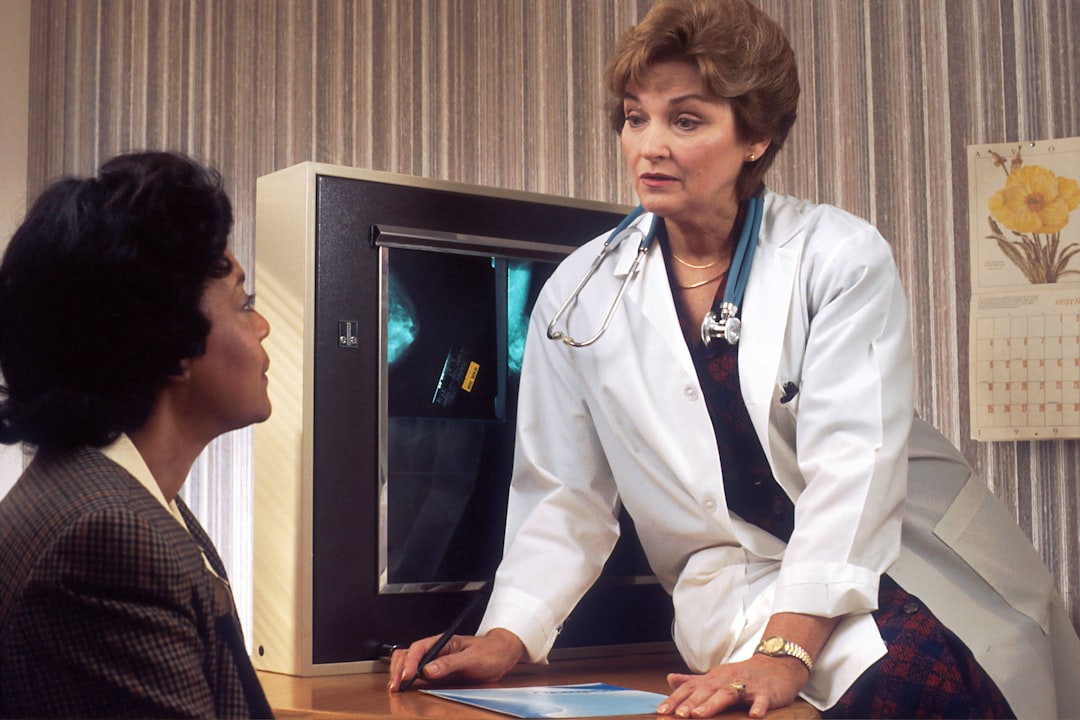

Evaluating the presence of a valid medical malpractice case involves multiple steps and considerations. If you suspect that you or a loved one has been a victim of medical negligence in Portland, understanding these factors can help determine the viability of your claim.
Medical malpractice occurs when a healthcare provider deviates from the accepted standard of care, resulting in harm to the patient. The standard of care refers to what a reasonably competent health professional would have done under similar circumstances. To prove malpractice, you must show that this deviation directly caused injury or harm.
To build a solid case, it’s essential to establish that there was an existing doctor-patient relationship. This relationship legally obliges the healthcare provider to offer competent medical treatment. Without evidence of such a relationship, it becomes challenging to argue that any duty was owed.
To establish negligence in a Portland medical malpractice case, plaintiffs must demonstrate that the healthcare provider owed them a duty of care. This duty generally arises from the doctor-patient relationship and obligates the provider to adhere to accepted medical standards. It's essential to show that this duty was indeed established at the time of the alleged malpractice event.
Once a duty of care is established, it must be proven that the healthcare provider breached this duty. A breach occurs when the provider's actions or omissions fall below the standard of care expected from reasonably competent professionals under similar circumstances. Evidence such as expert testimony and medical records often plays a critical role in substantiating this claim.
Proving causation requires showing that the breach directly resulted in harm or injury to the patient. This can be one of the more challenging aspects, as it involves linking specific acts or omissions by the provider to negative outcomes experienced by the patient. Expert witnesses are frequently called upon to clarify how deviations from standard practices led directly to adverse effects.
Portland is the most populous city in the U.S. state of Oregon, located in the Pacific Northwest region. Situated in the northwestern area of the state at the confluence of the Willamette and Columbia rivers, it is the county seat of Multnomah County, Oregon's most populous county. As of 2020, Portland's population was 652,503, making it the 26th-most populous city in the United States, the sixth-most populous on the West Coast, and the second-most populous in the Pacific Northwest, after Seattle. Approximately 2.5 million people live in the Portland metropolitan area, making it the 25th-most populous in the United States. About half of Oregon's population resides within the Portland metro area.
Named after Portland, Maine, which is itself named after the English Isle of Portland, the Oregon settlement began to be populated in the 1840s, near the end of the Oregon Trail. Its water access provided convenient transportation of goods, and the timber industry was a major force in the city's early economy. At the turn of the 20th century, the city had a reputation as one of the most dangerous port cities in the world, a hub for organized crime and racketeering. After the city's economy experienced an industrial boom during World War II, its hard-edged reputation began to dissipate. Beginning in the 1960s, it became noted for its growing liberal and progressive political values, earning it a reputation as a bastion of counterculture.
The city operates with a commission-based government, guided by a mayor and four commissioners, as well as Metro, the only directly elected metropolitan planning organization in the United States. Its climate is marked by warm, dry summers and cool, rainy winters. This climate is ideal for growing roses, and Portland has been called the "City of Roses" for over a century.

Medical malpractice is a term that resonates with fear and concern for both patients and healthcare providers.. It refers to situations where a medical professional’s negligence leads to patient harm.
Posted by on 2024-10-02

If you suspect that you or a loved one has been a victim of medical malpractice, it can be an overwhelming and distressing experience.. Medical malpractice occurs when a healthcare professional deviates from the standard of care, resulting in harm to the patient.
Posted by on 2024-10-02

Choosing the right medical malpractice lawyer for your case can be a daunting task, but it's a crucial step in seeking justice and compensation for the harm you may have experienced.. Medical malpractice cases are often complex, requiring specialized knowledge and experience to navigate effectively.
Posted by on 2024-10-02

Understanding Medical Malpractice: Key Concepts and Legal Standards Medical malpractice is a term that often conjures up images of courtroom dramas, where patients and healthcare providers clash over alleged failures in medical care.. However, the reality of medical malpractice is far more complex and nuanced, encompassing a wide array of legal standards and concepts that can be difficult to navigate for those unfamiliar with the field.
Posted by on 2024-10-02
Professional negligence in Portland spans a broad spectrum, yet there are certain types we see more often than others. Medical malpractice stands out as a particularly concerning issue. This ranges from misdiagnoses and delayed treatment to surgical errors and misuse of medication. The consequences can be dire, necessitating a lawyer with specialized knowledge in medical negligence.
Beyond healthcare, Portland residents have faced negligence from financial advisors, leading to significant losses. Misleading advice or the mismanagement of assets can disrupt lives and futures, making the selection of an adept lawyer all the more critical. Construction and real estate also see their fair share of professional negligence cases. Whether it's substandard building work or undisclosed property defects, the path to compensation relies on a lawyer experienced in these specific kinds of disputes.


While we trust healthcare providers to have our best interests at heart, it’s crucial to be an active participant in your healthcare. This means being informed, asking questions, and sometimes, seeking second opinions. It's also essential to understand your medical histories, such as allergies and past surgeries, as this information can be pivotal in prevention.
Documentation is your friend. Keep detailed records of your medical appointments, treatments, medications, and interactions with healthcare providers. This information can be invaluable in your defense should something go wrong. Moreover, knowing your rights and the standards of care expected in your treatment can empower you to speak up when care seems amiss.
Negligence in healthcare can manifest in numerous ways, but there are some common signs that could suggest malpractice. Missing or delayed diagnosis, inappropriate treatment, and even lack of informed consent, where patients are not properly informed about the risks of procedures or treatments, are among the most telling indicators. It's important for patients and their families to be vigilant about their care and to advocate for themselves or their loved ones.
Other signs of negligence include unnecessary surgery, medication errors, poor follow-up or aftercare, and premature discharge from a healthcare facility. Each of these instances can have severe and long-lasting effects on a patient's health and well-being. Recognizing these signs is a crucial first step in addressing the wrongs that may have been committed.
It's also essential to note that while adverse outcomes are unfortunate, they don't always equate to negligence. The complication must be directly linked to a breach in the standard of care for it to be considered malpractice.


Detecting malpractice in a hospital setting requires vigilance and an understanding of its various manifestations. One glaring sign is a significant and unexplained decline in a patient's condition, especially if it does not align with the expected trajectory of their illness or recovery. Such discrepancies may indicate misdiagnoses, incorrect medication administration, or surgical errors.
Communication failures between medical staff and patients or their families can also signal malpractice. This includes insufficient explanation of treatment options, risks, and procedures, or outright dismissal of a patient's concerns. These issues suggest a breach in the duty of care and respect owed to patients.
A medical malpractice lawyer specializes in representing patients who have been harmed due to the negligence or misconduct of healthcare providers. They handle legal claims to seek compensation for damages such as medical expenses, lost wages, and pain and suffering.
To determine if you have a valid case, you need to prove that there was a doctor-patient relationship, the healthcare provider was negligent, this negligence directly caused your injury, and you suffered specific damages as a result. Consulting with a qualified medical malpractice lawyer can help assess the strength of your case.
The statute of limitations varies by state but typically ranges from one to three years from the date of injury or discovery of harm. It’s crucial to act quickly since missing this deadline usually bars you from pursuing legal action.
Most medical malpractice lawyers work on a contingency fee basis, meaning they only get paid if you win your case. Their fee is typically a percentage of the settlement or judgment amount. This arrangement makes it financially feasible for victims to pursue justice without upfront costs.